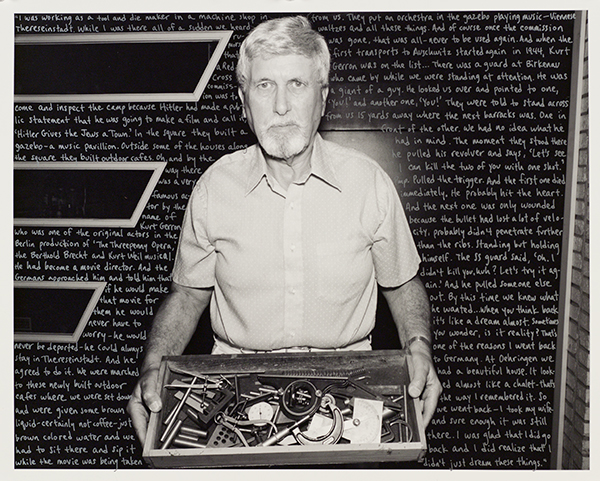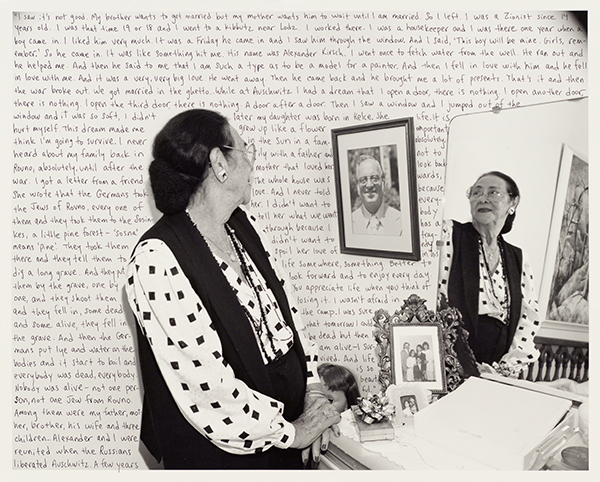“I was working as a tool and die maker in a machine shop in Thereseinstadt. While I was there all of a sudden we heard rumors that a Red Cross commission was to come and inspect the camp because Hitler had made a public statement that he was going to make a film and call it, ‘Hitler Gives the Jews a Town.’ In the square they built a gazebo- a music pavillion. Outside some of the houses along the square they built outdoor cafes. Oh and by the way, there was a very famous actor by the name of Kurt Gerron who was one of the original actors in the Berlin production of ‘The Threepenny Opera,’ the Berthold Brecht and Kurt Weil musical. He had become a movie director. And the Germans approached him and told him that if he would make that movie for them he would never have to worry; he would never be deported; he could always stay in Thereseinstadt. And he agreed to do it.
We were marched to these newly built outdoor cafes where we were set down and were given some brown liquid- certainly not coffee- just brown-colored water and we had to sit there and sip it while the movie was being taken from us. They put an orchestra in the gazebo playing music- Viennese waltzes and all these things. And of course once the commission was gone that was all- never to be used again. And when the first transports to Auschwitz started again in 1944, Kurt Gerron was on the list…
There was a guard at Birkenau who came by while we were standing at attention. He was a giant of a guy. He looked us over and he pointed to one, ‘You!,’ and another one, ‘You!’ They were told to stand across from us 15 yards away where the next barracks was. One in front of the other. We had no idea what he had in mind. The moment they stood there he pulled his revolver and says, ‘Let’s see if I can kill the two of you with one shot.’ Pmp. Pulled the trigger. And the first one died immediately. He probably hit the heart. And the next one was only wounded because the bullet had lost a lot of velocity, probably didn’t penetrate further than the ribs. Standing but holding himself. The SS guard said, ‘Oh. I didn’t kill you, huh? Let’s try it again.’ And he pulled someone else out. By this time we knew what he wanted…
When you think back it’s like a dream almost. Sometimes you wonder, ‘Is it reality?’ That’s one of the reasons I went back to Germany. At Oehringen, we had a beautiful house. It looked almost like a chalet- that’s the way I remembered it. So we went back- I took my wife- and sure enough it was still there. I was glad that I did go back and I did realize that I didn’t just dream these things.”

